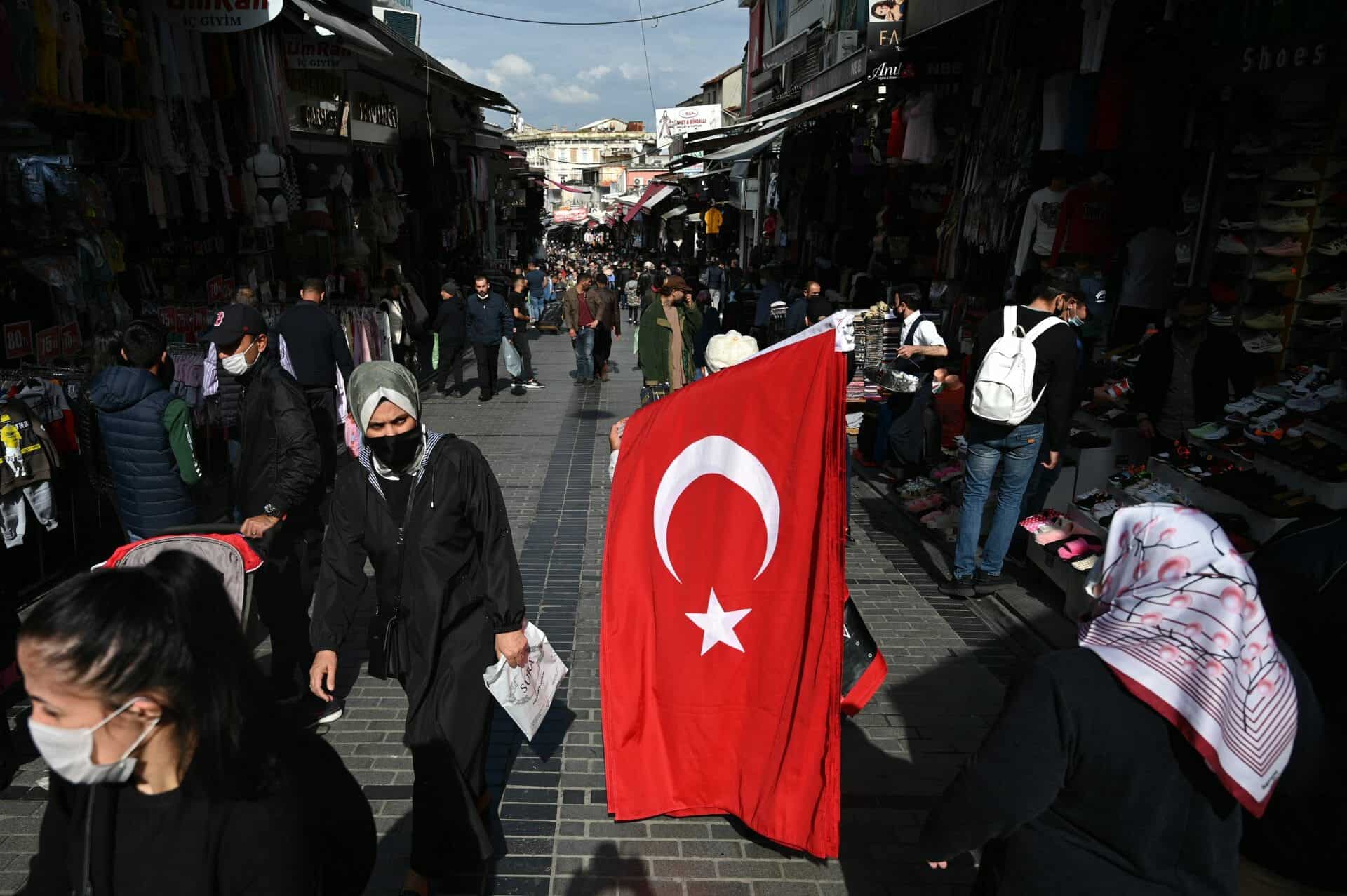Turkey’s central bank cut interest rates for the second successive month on Thursday in what economists interpreted as confirmation of its loss of independence from President Recep Tayyip Erdogan.
The bank cut its policy rate to 16 from 18 percent despite soaring inflation and a depreciating currency. The lira extended its fall into record-low territory against the dollar and euro after the announcement.
Erdogan has been pushing the policy-setting bank to cut interests rates in order to boost lending and promote investment and economic growth.
This expansionist policy has helped Turkey’s economy grow throughout the coronavirus pandemic and perform far better than its emerging market peers.
But the drawbacks have also been dire. The lira has lost one-fifth of its value against the dollar since the start of the year and the annual inflation rate has reached nearly 20 percent — quadruple the government target.
Turks are converting their liras into foreign currencies and gold to try and preserve their dwindling savings as a result.
Thursday’s cut reaffirms “that monetary policy is firmly under Erdogan’s influence,” Eurasia Group said in a research note.
The research institute noted that a growing number of business leaders — including Turkey’s largest industry association — have been calling on the bank to regain its independence and focus on stabilizing the exchange rate.
Erdogan is in danger of “dragging the Turkish economy into a president-made crisis,” Eurasia Group said.
‘Insane policy’
Turkey’s financial problems have been accompanied by an unusual spike in dissent from the country’s business community.
The Turkish Industry and Business Association issued a veiled swipe this week at Erdogan’s focus on achieving economic growth at all costs.
Opposition leader Kemal Kilicdaroglu also called on the bank on Thursday to “do what the economy requires” and “not take orders” from Erdogan.
The central bank blamed rising inflation on “transitory” factors that will dissipate with time.
“The recent increase in inflation has been driven by supply-side factors such as the rise in food and import prices, especially in energy, and supply constraints,” the bank said.
“It is assessed that these effects are due to transitory factors.”
Erdogan is famous for his unorthodox belief that high interest rates cause inflation instead of helping tamp it down.
Conventional economic theory states the exact opposite is true.
Thursday’s interest rate cut was sharper than the one percentage point reduction expected by the market.
“Insane monetary policy experiment going on in Turkey at present,” BlueBay Asset Management economist Timothy Ash remarked in a research note.
“Think the message to Kilicdaroglu and the market is clear — I listen to Erdogan and no one else,” Ash wrote.








